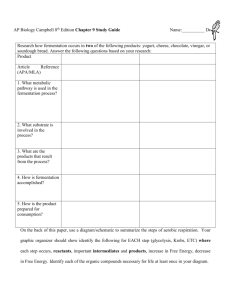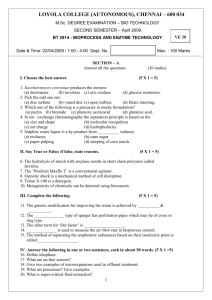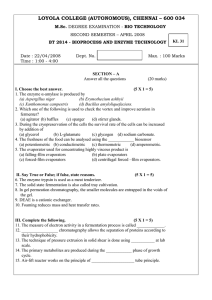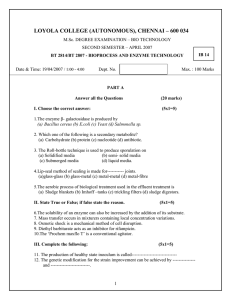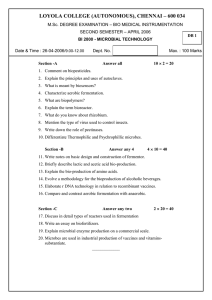Biocatalytic alginate microreactors for simultaneous
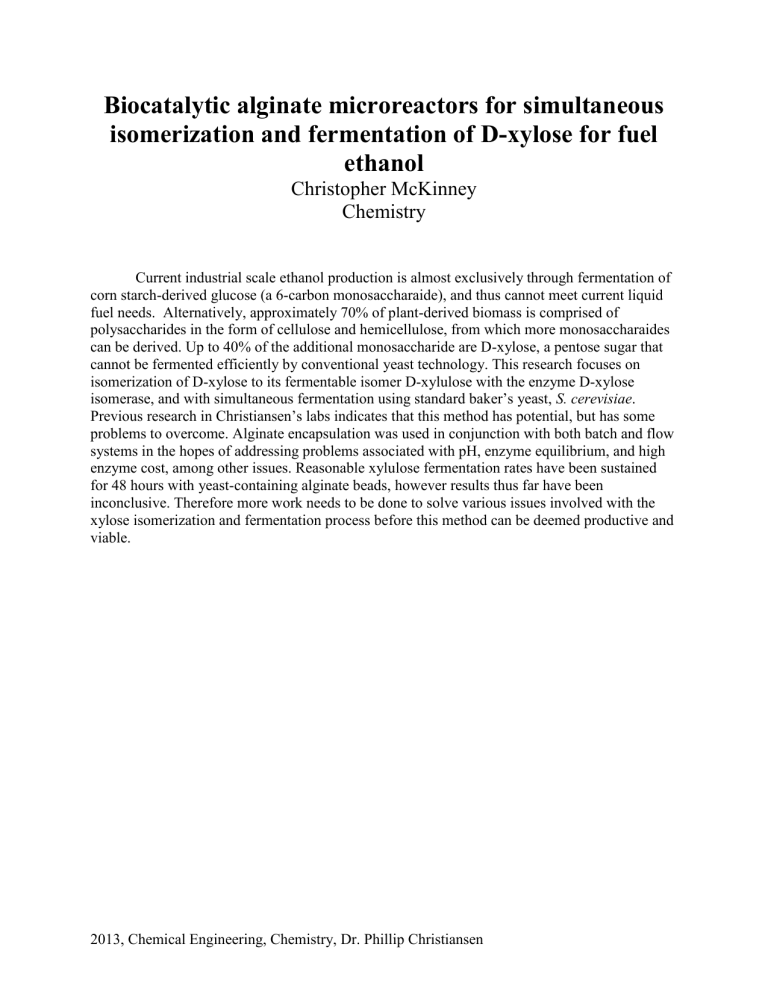
Biocatalytic alginate microreactors for simultaneous isomerization and fermentation of D-xylose for fuel ethanol
Christopher McKinney
Chemistry
Current industrial scale ethanol production is almost exclusively through fermentation of corn starch-derived glucose (a 6-carbon monosaccharaide), and thus cannot meet current liquid fuel needs. Alternatively, approximately 70% of plant-derived biomass is comprised of polysaccharides in the form of cellulose and hemicellulose, from which more monosaccharaides can be derived. Up to 40% of the additional monosaccharide are D-xylose, a pentose sugar that cannot be fermented efficiently by conventional yeast technology. This research focuses on isomerization of D-xylose to its fermentable isomer D-xylulose with the enzyme D-xylose isomerase, and with simultaneous fermentation using standard baker’s yeast,
S. cerevisiae .
Previous research in Christiansen’s labs indicates that this method has potential, but has some problems to overcome. Alginate encapsulation was used in conjunction with both batch and flow systems in the hopes of addressing problems associated with pH, enzyme equilibrium, and high enzyme cost, among other issues. Reasonable xylulose fermentation rates have been sustained for 48 hours with yeast-containing alginate beads, however results thus far have been inconclusive. Therefore more work needs to be done to solve various issues involved with the xylose isomerization and fermentation process before this method can be deemed productive and viable.
2013, Chemical Engineering, Chemistry, Dr. Phillip Christiansen
